- Home
- Brian S. Wheeler
Words Burned to Flame Page 14
Words Burned to Flame Read online
Page 14
* * * * *
The bookshelves didn’t hold the full portion of Mr. Turner’s library. I carried books out of closets, and Mr. Turner directed me to the kitchen cabinets that housed still more books rather than kitchenware. I brought plastic bins filled with more books up from Mr. Turner’s damp basement. I pulled books out from beneath Mr. Turner’s bed. My arms ached by the time I dumped the last of the library onto that pile assembled in the backyard, and I chuckled at the thought that carrying books might make my body healthy and strong should assembling pyres for Mr. Turner become a frequent errand.
“Well done, James Frost. That pile should appease the town.”
“I looked everywhere. Are you sure we haven’t forgotten any?”
Mr. Turner shook his head. “That’s all of them. I’m sure there’s not a page of words left anywhere in the house. A boneshaker knows whenever a place has been emptied as it should.”
The wind pulled open the pages of a wire-bound notebook located in the pile of pages. “Are you sure you want to burn all your poetry notebooks? All those words are going to be lost if you just burn them.”
“Maybe, but they won’t be useless,” answered Mr. Turner. “That’s more than can be said about the words of most poets in this country. We can’t spare a single page, James. We’ll need all the fuel we can offer to get the fire burning like it should.”
Mr. Turner surprised me when he took his black bag of tiles out from his within his jacket. He gently shook the bag, and I saw the smile grow across his face at the clicking and clacking noises that replied to him. Then, Mr. Turner tossed that bag of runes atop the pile with nor further fanfare. He didn’t so much as sigh.
I moved to retrieve them, but Mr. Turner held me back.
“Let them be, James.”
I stared at my old friend. “But I thought you said your family dedicated everything to collect those pieces. I thought you said that they suffered so that one day the alphabet those runes represent might be reconstructed. You just can’t throw those tiles onto the fire.”
Mr. Turner winked. “You’re a very wise boy, but you must remember that a boneshaker’s magic always comes at a cost. A boneshaker’s power always demands a sacrifice. I am the last of my line, and the tiles are mine, to do with as I please.”
“But they’ll be lost. That alphabet will be lost.”
“Oh, perhaps not,” whispered Mr. Turner. “They will remain at the bottom of this pyre’s ash much long than I will remain on this ground. They will return should the proper person ever come looking for them. All a new boneshaker would need to do to find them is shift his fingers through the dust.”
Mr. Turner wouldn’t let me help him squeeze a tin’s worth of charcoal fluid on the pyre, telling me that pouring flammables onto all those pages was too dangerous a chore for a boy my age, so I worried as Mr. Turner’s knees buckled and his hands trembled as he circled that pyre and tossed gas onto his library. Mr. Turner would terrify me by bringing a plastic doll to screaming life, but he drew a line when it came to having me play with fire. We didn’t say anything as we gave the fluid a little time to soak into so many pages. I had promised to help Mr. Turner, and I wouldn’t step back step back from that vow. Yet it felt sad to see all of those books dumped onto the ground. Did Mr. Turner feel his years had been wasted in the study of ideas printed in so many books?
Mr. Turner didn’t need a match to start his fire. He once more clapped his hands and growled.
“Nomsate. Arthoo. Kalemesh!”
I imagined the flame that answered Mr. Turner’s summons rose from one of those runic tiles trapped within that black bag. The blue fire spread slowly. It flickered and danced as it started consuming those pages, and its blue pallor turned with time into a healthy flame’s shades of orange and yellow. The books fought as hard as they could. Their cardboard covers smoked for many moments before allowing that fire access to the more delicate, inner pages. The glossy pages of photography books offered a brave resistance before crumbling into black. The very ink seemed to escape the fire altogether by transforming into an oil smoke that floated away from the pyre.
The fire grew regardless, and it would feast well before emptying of fuel. I couldn’t feel the wind that lifted burning pieces of those books into the air. Nor could I determine whatever direction the wind blew, for flaming bits of Mr. Turner’s burning books radiated from that pyre in all directions. I held my breath as I watched several embers fall onto the roof of the nearest neighbor’s home. Soon, those embers gnawed on the shingles, racing to the windows and forcing the elderly couple that called that building home into the street, where they shouted for help.
No help came to them. Their home was but the first to burn in the fire that originated in Mr. Turner’s pyre. Shards of paper continued to carry from that burning library to settle upon the homes of Mr. Turner’s neighbors, and little time passed before the street filled with the residents of Addieville, who shouted as they watched rivers of burning paper float over their community, apparently bound by no wind. The old grain elevator that rotted alongside the abandoned railway caught fire like a torch. The closed body shop quickly fed the flames that drifted into the garage, where the fire intensified by feeding on the gas cans left behind after the shop closed. Then, the fire jumped into the neighboring windows of the adjacent boutique shop and beauty salon. Residents pointed and screamed. They shouted for their neighbors to collect pales of water and form a citizen’s fire brigade. But few of that community made any kind of an effort to help themselves, so there was little opposition preventing those flames from eating whatever bit of rotten plywood or mildewed roofing shingle their appetite craved.
“Why do they just stand in the street?” I stammered. “Why don’t they fight the fire?”
Mr. Turner peered into my eyes. “They’re like the town, James. They’re not dead, but they’re hardly living. They’re doomed to be trapped in the middle so long as Addieville remains on this ground.”
Mr. Turner’s face betrayed no indication of remorse. His smile didn’t change. He paid little attention to where those flames floated. I lacked a boneshaker’s conviction, and I felt ill as I watched that fire spread through Addieville. I couldn’t help but wonder if someone might’ve been trapped in that smoldering home where an empty wheelchair sat on the front porch. I thought of the widow Mr. Jasper, and I worried what would happen to his old heart should he have to watch fire burn his lost wife’s wedding dress he kept in his front closet. My legs turned weak.
Mr. Turner smiled as that pyre showed no signs of burning itself out of fuel.
“All of them have what they want now, James. They can all gather in the street and watch my books burn. But it won’t be enough. Words seldom are. I know you’re father will tell you differently, but the fact is that words rarely change anything at all. Most of Addieville’s bones will have to bleach a while longer beneath the sun. Perhaps someone might finish the job someday, but this isn’t that day. I’m not the boneshaker that’s needed to see it through to the end.”
Dusk started to fall, and the floating rivers of burning slips of paper looked lovely as they carried Mr. Turner’s fire. Mr. Turner didn’t take a step back from his pyre. He didn’t retreat to hide within his home as the blaze continued to travel through town. He simply stood and smiled as his book continued to burn.
My courage broke. I abandoned Mr. Turner and raced by back through town, desperate to find a place to hide when I heard the sirens of those engines that finally arrived from Miller Junction. The flames hadn’t touched the grocery store, and no one gathered in the street before the building paid me any attention as I hurried into the aisles, hiding between the hotdog buns and soda cans. It felt like I stood on that spot for hours, my heart racing from fear at the thought that at any moment a policeman would appear to drive me to the county jail for my role in starting Mr. Turner’s fire. But no one paid any attention to me at all as the fire trucks continued to arrive from outside of town, racing to fight th
e flames continuing to spread through the community.
I raced home on my bicycle when I couldn’t spend another minute in the grocery store, and I wasn’t surprised to find that Mr. Turner’s fire hadn’t touched my family’s home, for I recognized that magic, more than random chance, determined where those flames drifted. My parents rushed to pull me inside the moment I jumped from my bicycle, reprimanding me for not hurrying home when the fires spread. They forgave me quickly, and they thought nothing amiss when I told them I had only been watching the first fire crews from Miller Junction prepare to fight the blazes. They hugged me goodnight after I finished a plate of cold mac and cheese, and I went to bed believing that the world would never learn the part I played in helping Mr. Turner set flame to his books.
But my parents’ phone rang in the middle of the night, the county fire marshal on the line to inform my father there was reason to suspect I was with Mr. Turner that afternoon when the old man started the flames that gripped so much of town. Perhaps the fire marshal alluded to a witness, who watched from his or her window that afternoon when I carried one book after another to Mr. Turner’s pyre. Perhaps some shopper watched my suspicious behavior in the grocery store and linked me to the source of that blaze based on my family’s nefarious connection to Mr. Turner. I listened from the edge of my doorway as my father argued with the marshal that the evidence linking me to any part of that fire was very weak, and that a young boy couldn’t be faulted for whatever Mr. Turner may have unintentionally done to the village when he attempted to burn a bit of his trash behind his home. I was afraid that my father would stomp into my room to scream at me when he finished the fire marshal’s call, but he walked straight to bed, never mentioning that conversation over the phone.
We left Addieville before the end of a full month, time enough for my father to secure a new librarian position in yet another dying town. I wonder how my parents ever sold that home we occupied during our stay in Addieville. I can’t imagine what might motivate anyone to take out a mortgage in such a place. The communities we would call home didn’t show us that level of resentment Addieville harbored toward us, but I can’t say they offered us any further fellowship. Neither my father nor mother would speak of Addieville. I wonder if they felt it was a fault within themselves that kept Addieville from ever accepting our family. We rolled down the road an out of town before I ever learned what consequences Mr. Turner faced for putting his poetry to flame and burning away half of Addieville.
I never saw Mr. Turner again.

 Polish, Dust and Sparkle
Polish, Dust and Sparkle Old Hunters on the New Wild
Old Hunters on the New Wild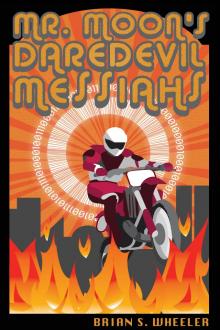 Mr. Moon's Daredevil Messiahs
Mr. Moon's Daredevil Messiahs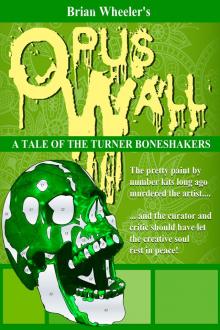 Opus Wall
Opus Wall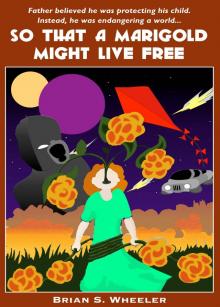 So That a Marigold Might Live Free
So That a Marigold Might Live Free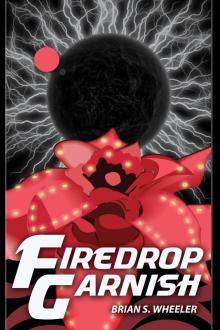 Firedrop Garnish
Firedrop Garnish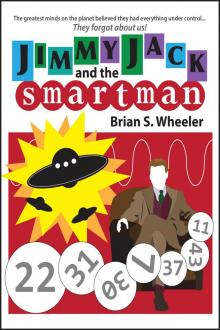 Jimmy Jack and the Smartman
Jimmy Jack and the Smartman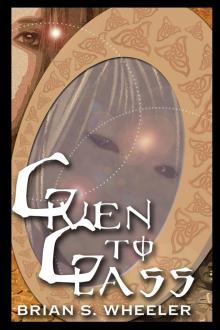 Given to Glass
Given to Glass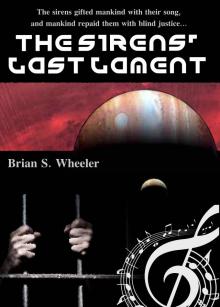 The Sirens' Last Lament
The Sirens' Last Lament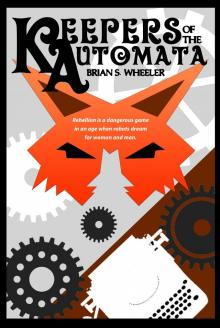 Keepers of the Automata
Keepers of the Automata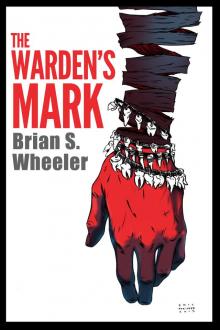 The Warden's Mark
The Warden's Mark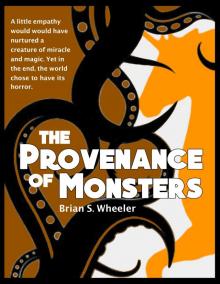 The Provenance of Monsters
The Provenance of Monsters Cat-Tooth Magic and Dog-Eared Miracles
Cat-Tooth Magic and Dog-Eared Miracles Heritage and Shimmer
Heritage and Shimmer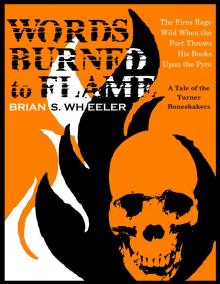 Words Burned to Flame
Words Burned to Flame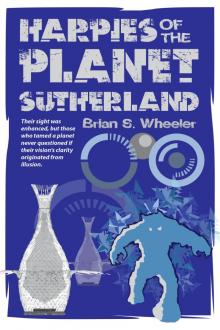 Harpies of Planet Sutherland
Harpies of Planet Sutherland The House on Maple Street
The House on Maple Street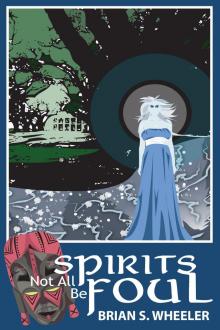 Not All Spirits Be Foul
Not All Spirits Be Foul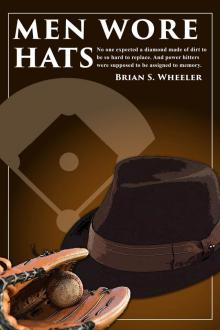 Men Wore Hats
Men Wore Hats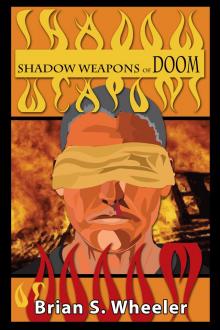 Shadow Weapons of Doom
Shadow Weapons of Doom Glorious Gardens of Teetering Rust
Glorious Gardens of Teetering Rust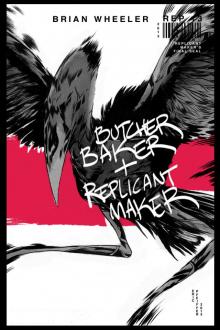 Butcher, Baker and Replicant Maker
Butcher, Baker and Replicant Maker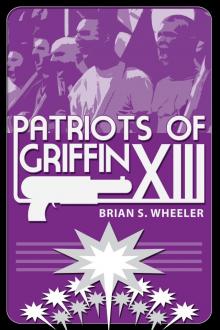 Patriots of Griffin XIII
Patriots of Griffin XIII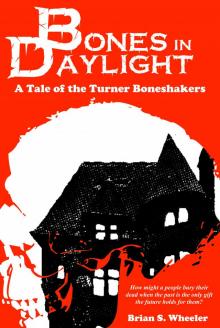 Bones in Daylight
Bones in Daylight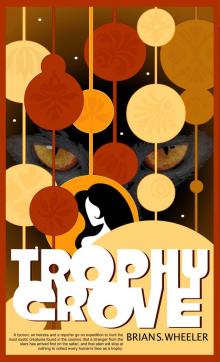 Trophy Grove
Trophy Grove Grandchildren Returning Their Spoils
Grandchildren Returning Their Spoils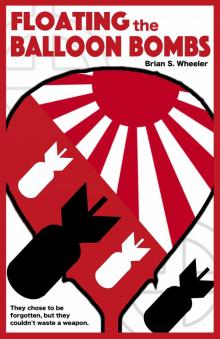 Floating the Balloon Bombs
Floating the Balloon Bombs Starlight, Starbright
Starlight, Starbright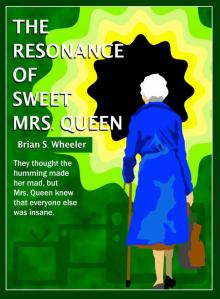 The Resonance of Sweet Mrs. Queen
The Resonance of Sweet Mrs. Queen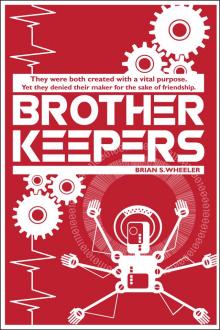 Brother Keepers
Brother Keepers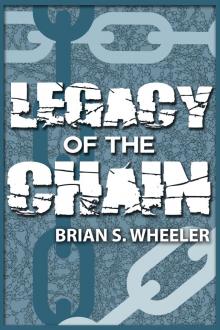 Legacy of the Chain
Legacy of the Chain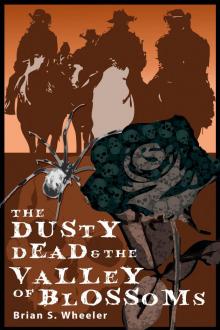 The Dusty Dead in the Valley of the Blossoms
The Dusty Dead in the Valley of the Blossoms Thus the Starfly Vanish
Thus the Starfly Vanish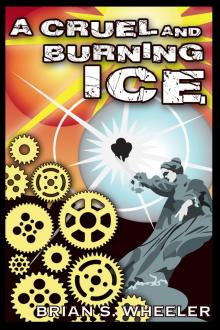 A Cruel and Burning Ice
A Cruel and Burning Ice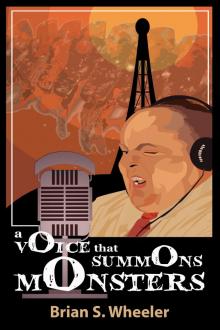 A Voice That Summons Monsters
A Voice That Summons Monsters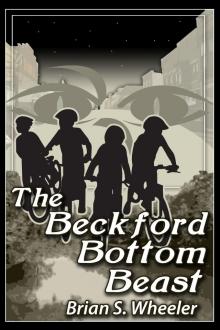 The Beckford Bottom Beast
The Beckford Bottom Beast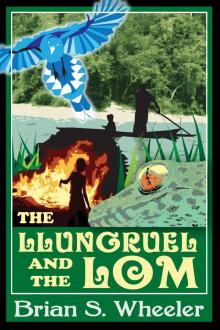 The Llungruel and the Lom
The Llungruel and the Lom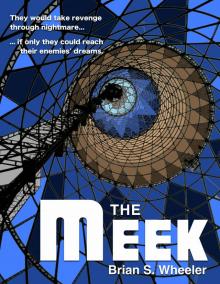 The Meek
The Meek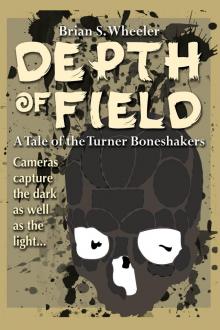 Depth of Field
Depth of Field Mary, in Need of Belle
Mary, in Need of Belle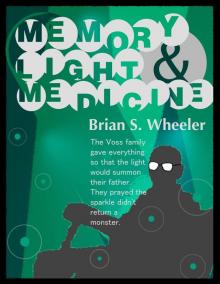 Memory, Light & Medicine
Memory, Light & Medicine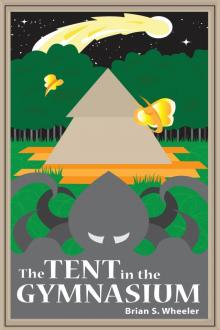 The Tent in the Gymnasium
The Tent in the Gymnasium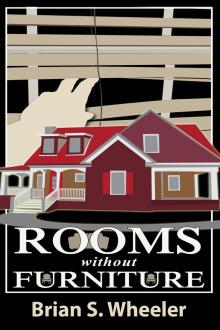 Rooms Without Furniture
Rooms Without Furniture A Handicap of Shades
A Handicap of Shades Glass Desires
Glass Desires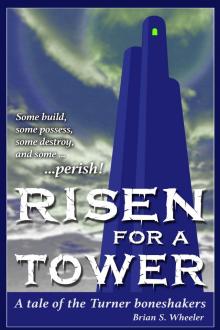 Risen for a Tower
Risen for a Tower Kennel, Kingdom and Crown
Kennel, Kingdom and Crown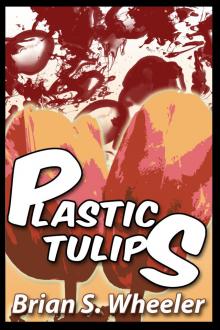 Plastic Tulips
Plastic Tulips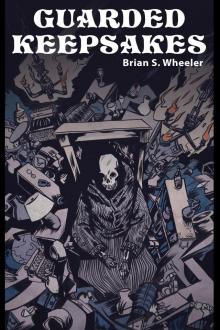 Guarded Keepsakes
Guarded Keepsakes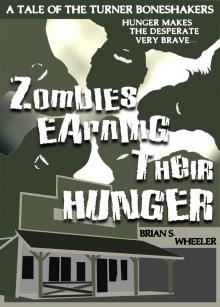 Zombies Earning Their Hunger
Zombies Earning Their Hunger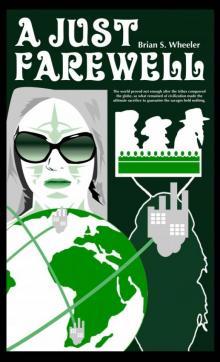 A Just Farewell
A Just Farewell